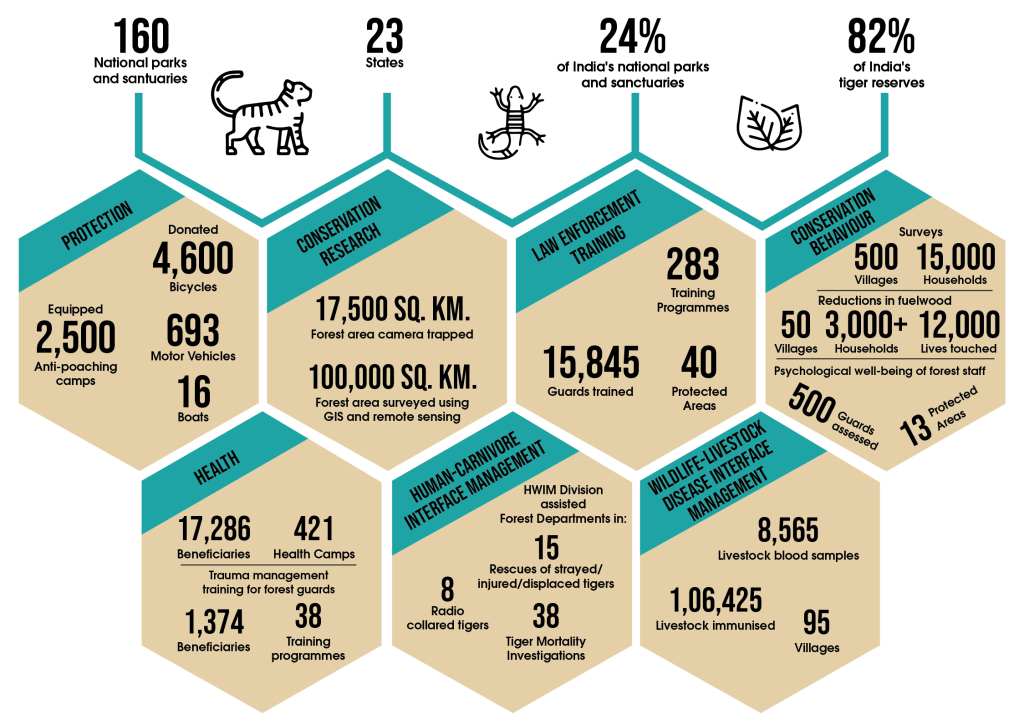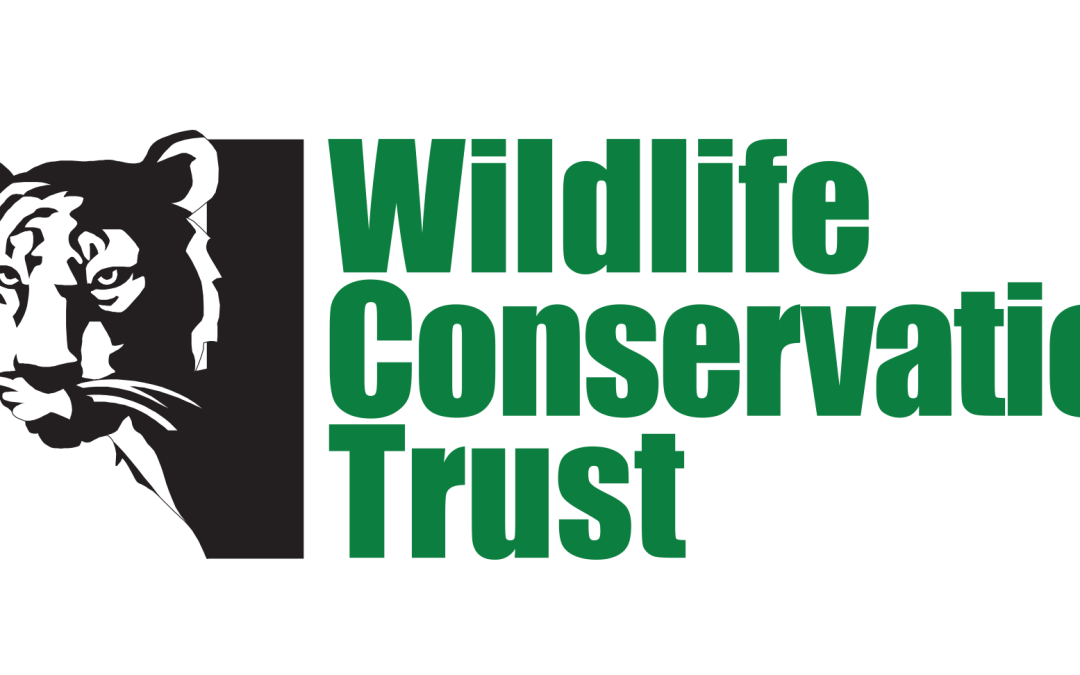The Wildlife Conservation Trust (WCT) was founded in 2002 to safeguard India’s life-giving ecosystems in a holistic and sustainable manner. Recognising the interconnectedness between people and ecosystems, WCT uses a 360° approach to conservation by placing equal emphasis on both forest & wildlife conservation and community development.
WCT’s core conservation activities:
1. Landscape-scale conservation using umbrella species such as tigers and dolphins.
2. Catalyse declaration of Protected Areas and notification of buffer zones of tiger reserves.
3. Road Ecology – WCT conducts long-term studies to help suggest ecologically and economically viable mitigation measures across linear infrastructure (roads, railways, canals, etc.) that cuts through wildlife corridors.

WCT’s wildlife biologist and head of the Conservation Research division Aditya Joshi, along with WCT’s conservation dog, inspects the mitigation structure successfully built on the NH44 highway along the critical Kanha-Pench corridor. Credit: Dr. Anish Andheria
4. Health and safety of frontline forest staff
5. Conservation of highly endangered species such as Indian pangolin and gharial
6. Providing energy efficient solutions to reduce forest degradation, human-wildlife conflict, firewood collection and improve health of villagers
7. Riverine Ecosystems & Livelihoods Programme
8. Strengthening forest protection by equipping frontline forest staff
9. Wildlife law enforcement and forensics training for the forest staff
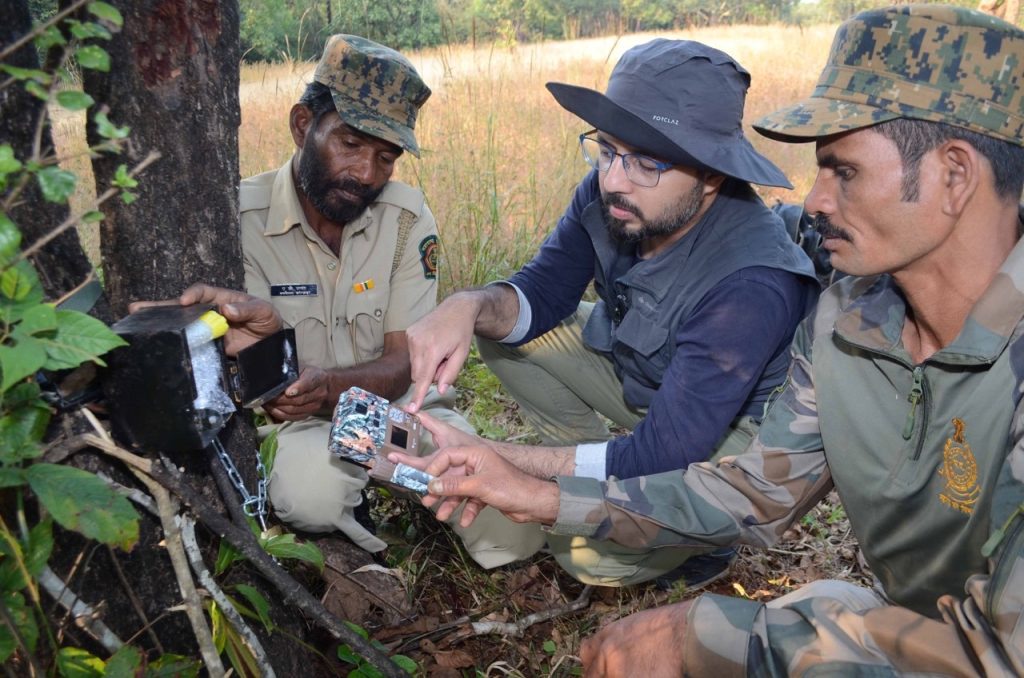
WCT’s wildlife biologist Girish Punjabi (centre) trains the forest staff in Chandgad Conservation Reserve in the use of camera traps for monitoring wildlife. Credit: Rizwan Mithawala/WCT
10. Disease surveillance at human-livestock-wildlife interface
Organisation Highlights:
1. WCT is the only non-governmental organisation conducting large-scale tiger population estimation exercise in wildlife corridors and habitats outside Protected Areas. WCT regularly participates in the All India Tiger Population Estimation exercise conducted by the NTCA.
2. WCT has played a role in bringing at least 877,800 ha. (ie. 8,778 sq.km.) of forestland under varying degrees of protection.
3. WCT’s model involving environmentally sustainable and energy efficient biomass-fired water heaters designed to drastically reduce firewood usage for water heating with the aim of arresting forest degradation, has been accepted widely and the project is being replicated and scaled up with the help of different state governments.
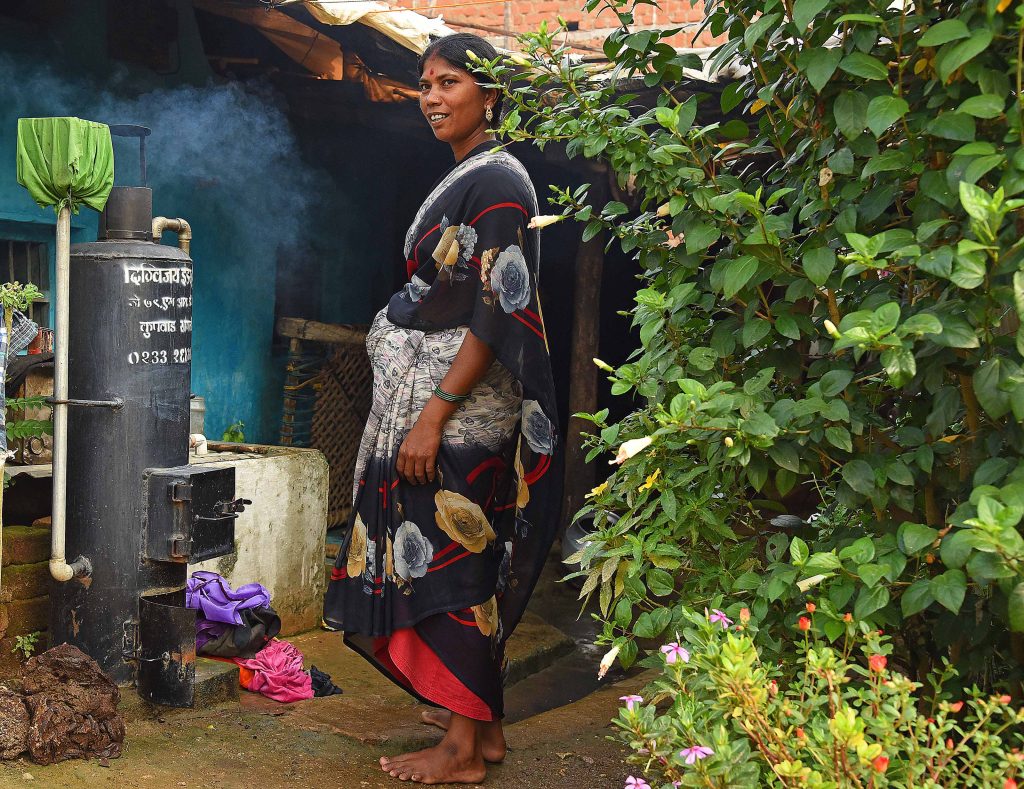
A local woman in Chandrapur District, Maharashtra, uses the sustainable, biomass-fired water heater (bumbb as it is called in Marathi) adopted by her household. Credit: Dr. Anish Andheria
4.WCT plays a significant role in providing science-based policy recommendations to both the central and state governments
5. WCT has been conducting radio-telemetry studies on the critically endangered Indian pangolin and Eurasian otter over the past three years to understand their ecology and help in their long-term conservation.
6. WCT’s Conservation Dogs Unit assists the government and WCT in conducting research on endangered wildlife, in law enforcement & snare detection, and in tracking potentially conflict-causing large carnivores.
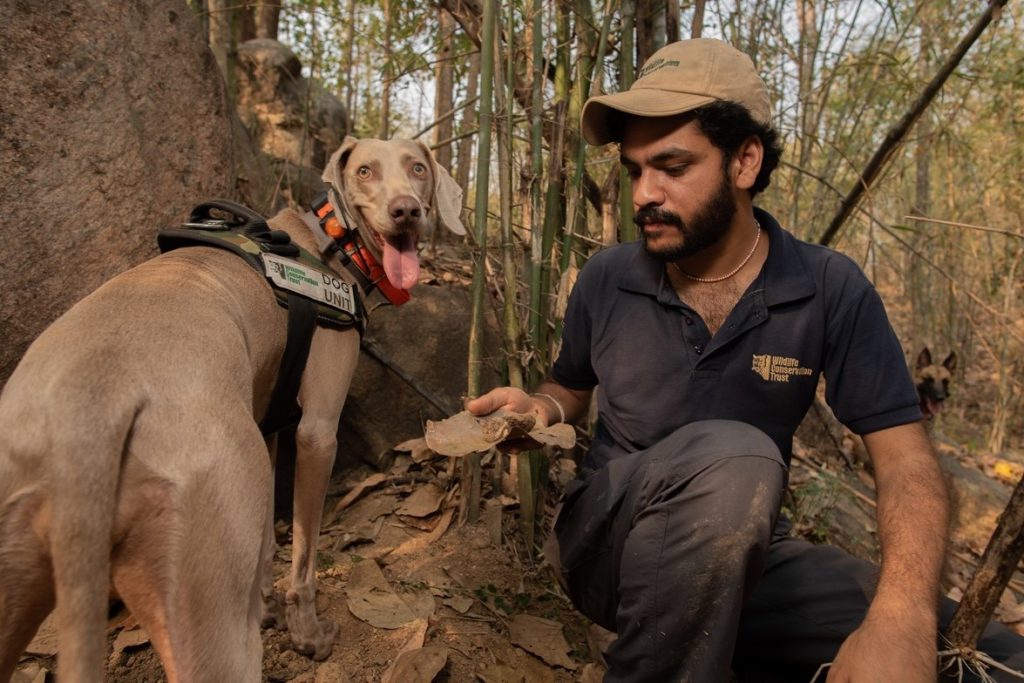
WCT’s Conservation Dog Moya indicating pangolin scat to the Unit’s canine handler and researcher Rajat Thanekar as part of WCT’s project focused on the conservation of the Indian pangolin. Credit: WCT
7. WCT has helped impart quality education to over 82,000 children from 728 schools in and around the buffer areas of 11 tiger reserves.
WCT’s Reach:
